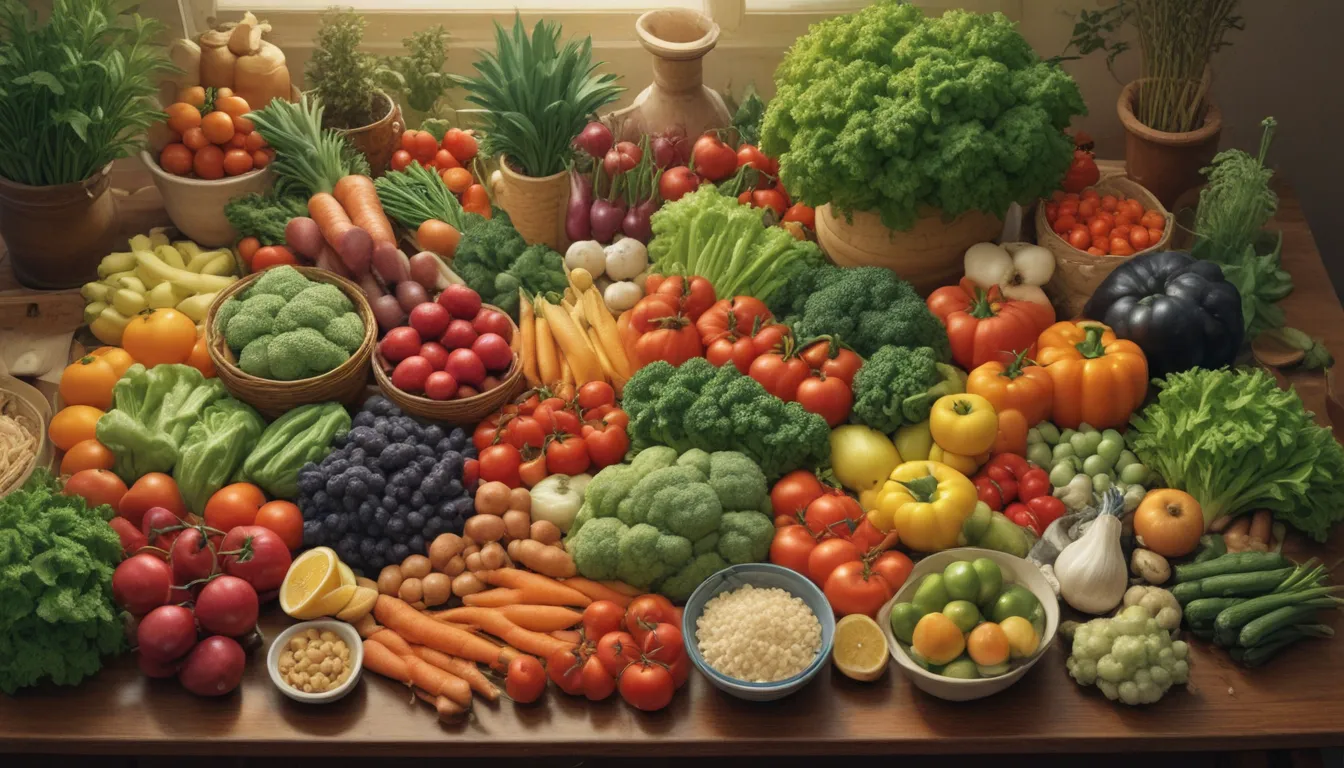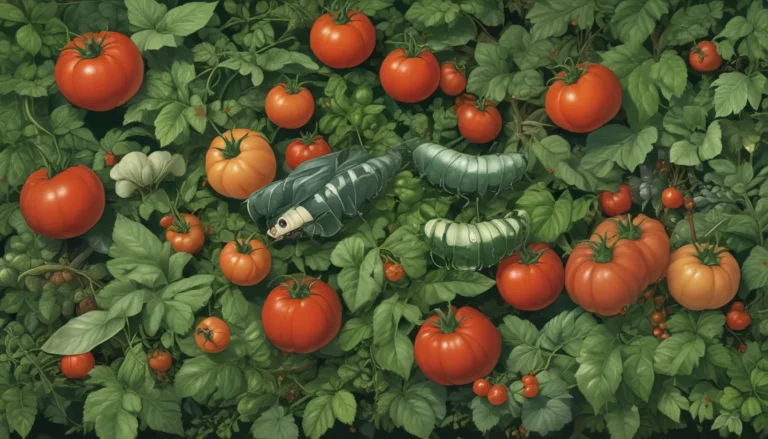A Comprehensive Guide to Boosting Your B Vitamin Intake with Homegrown Vegetables

Are you wondering how to ensure you’re getting all the essential B vitamins in your diet? As a dietitian, I often get questions about the best way to meet daily nutrient requirements without relying on supplements. The good news is that many B vitamins can be found in the fresh produce we eat every day, and some may even be growing in our gardens!
In this detailed guide, we’ll explore the different types of B vitamins and the vegetables you can grow at home to ensure you’re meeting your nutritional needs. By incorporating these nutrient-rich veggies into your diet, you can amplify your B vitamin intake while enjoying the flavor and freshness of garden-fresh produce.
Understanding B Vitamins
B vitamins are a group of essential nutrients that play a crucial role in maintaining our overall health. Each B vitamin has its specific functions in the body, supporting metabolism, energy production, and various bodily processes.
While there are multiple B vitamins, we’ll focus on the eight major types in this article: Thiamin (B1), Riboflavin (B2), Niacin (B3), Pantothenic Acid (B5), Pyridoxine (B6), Biotin (B7), Folate (B9), and Cobalamin (B12). These vitamins can be obtained from a diverse range of vegetables, making them an excellent source of essential nutrients.
B-Vitamin Breakdown
Let’s dive into each B vitamin, exploring its benefits and the vegetables where you can find it in your garden:
B1 – Thiamin
- Benefits: Supports energy conversion and nervous system function.
- Sources: Beans and peas.
- Daily Value: 1.2 mg.
B2 – Riboflavin
- Benefits: Facilitates food-to-energy conversion and red blood cell formation.
- Sources: Mushrooms and spinach.
- Daily Value: 1.3 mg.
B3 – Niacin
- Benefits: Aids in digestion, energy conversion, and nervous system support.
- Sources: Meats, whole grains, and beans.
- Daily Value: 16 mg.
B5 – Pantothenic Acid
- Benefits: Essential for energy production and hormone synthesis.
- Sources: Peas, beans, broccoli, mushrooms, avocados, and sweet potatoes.
- Daily Value: 5 mg.
B6 – Pyridoxine
- Benefits: Supports immune function, metabolism, and red blood cell formation.
- Sources: Chickpeas and potatoes.
- Daily Value: 1.7 mg.
B7 – Biotin
- Benefits: Crucial for energy storage and metabolism.
- Sources: Avocado, cauliflower, sweet potatoes, and broccoli.
- Daily Value: 30 mcg.
B9 – Folate
- Benefits: Aids in protein metabolism and red blood cell formation.
- Sources: Asparagus, avocado, beans, peas, and leafy greens.
- Daily Value: 400 mcg.
B12 – Cobalamin
- Benefits: Supports energy conversion, nervous system function, and red blood cell formation.
- Sources: Mainly found in animal products, fortified cereals, and supplements.
- Daily Value: 2.4 mcg.
While B12 may not be readily available in garden vegetables, consuming a diverse range of B-vitamin-rich veggies can help you meet your nutrient requirements and promote overall health.
Growing Your Own B-Vitamin Bounty
Interested in cultivating a nutrient-rich garden? Here are some vegetables that can boost your B vitamin intake:
Spinach
- Benefits: A source of riboflavin and B6.
- Variety: ‘Baby’s Leaf Hybrid’.
- Seeds: Available from Burpee.
Potatoes
- Benefits: Contains B6.
- Variety: ‘Princess Laratte’.
- Planting: Find mini tubers at Burpee.
Broccoli
- Benefits: Rich in biotin and B5.
- Variety: ‘De Cicco’.
- Seeds: Available from Eden Brothers.
Sweet Potatoes
- Benefits: High in B5 and folate.
- Variety: ‘Georgia Jet’.
- Planting: Find bare roots at Burpee.
Avocados
- Benefits: Contains folate, biotin, and B5.
- Variety: Hass.
- Planting: Available at Nature Hills Nursery.
Asparagus
- Benefits: Rich in folate.
- Variety: ‘UC72’.
- Seeds: Available at Eden Brothers.
By growing these nutrient-rich vegetables in your garden, you can create a sustainable source of B vitamins to enhance your overall diet.
Boosting Vitamin B Intake
Incorporating garden-fresh vegetables into your meals not only offers delicious flavors but also provides essential nutrients like B vitamins. Whether you’re a seasoned gardener or a novice, growing nutrient-rich veggies can significantly contribute to your nutritional intake.
What vegetables are you planning to grow next to elevate your B vitamin consumption? Share your thoughts in the comments below!
For more tips on cultivating nutritious vegetables and incorporating them into your diet, check out these helpful resources:
- How to Plant and Grow Zucchini
- Harvest Hearty Greens from the Garden: How to Grow Kale
- Healthy Purple Produce: Should You Eat More Purple Fruits and Vegetables?
Take advantage of your garden’s bounty to ensure you’re meeting your B vitamin needs while enjoying the benefits of homegrown produce. Happy gardening!
Disclaimer: The information presented in this article is for informational purposes only and should not be considered personalized medical advice. Always consult a healthcare professional before making any significant changes to your diet or supplementation.





